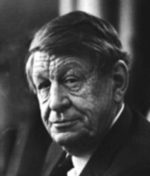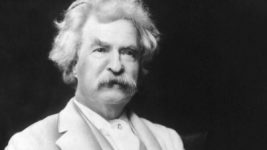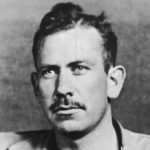Half-baked and unfinished work, mindless time wasted on the internet and never catching up with on what you set out to do every day! It’s a struggle. A painful wrestling to do better but every time, somehow, falling behind our daily routines. If you check the daily routines of famous writers, then you’ll realize how they made it to become bestseller authors.
As you read this article, you will discover and unleash the best daily routines of famous writers. If imitated properly, these daily routines of famous writers can help you to achieve your goal.
As you read the rest of this article, you will discover and uncover the best daily routines of famous writers that have ever existed. You will learn how you can develop and use these routines in your own life to make steady progress everyday and consistently follow through on what you set out to do.
Want to know what was the daily routines of famous writers and how successful authors utilized their time and energy to achieve their goals?
Stephen King
“I try to get six pages a day”
Best-selling thriller writer, Stephen King, has penned over 50 novels and sold over 350 million copies in a career that spans over 40 years. In case you’re wondering, Stephen King’s daily routines usually looks something like this,

“I have a glass of water or a cup of tea. There’s a certain time I sit down, from 8:00 to 8:30, somewhere within that half hour every morning,” he explained. “I have my vitamin pill and my music, sit in the same seat, and the papers are all arranged in the same places …The cumulative purpose of doing these things the same way every day seems to be a way of saying to the mind, you’re going to be dreaming soon.”
(Source: Lisa Rogak, Haunted Heart: The Life and Times of Stephen King)
Ernest Hemingway
In a 1954 interview, Ernest Hemingway, Nobel Prize winner and novelist, known for his great works including A Farewell to Arms and The Old Man and the Sea, finally opens up about his real daily routines.
“I write every morning.”
 When I am working on a book or a story I write every morning as soon after first light as possible. There is no one to disturb you and it is cool or cold and you come to your work and warm as you write. You read what you have written and, as you always stop when you know what is going to happen next, you go on from there. You write until you come to a place where you still have your juice and know what will happen next and you stop and try to live through until the next day when you hit it again.
When I am working on a book or a story I write every morning as soon after first light as possible. There is no one to disturb you and it is cool or cold and you come to your work and warm as you write. You read what you have written and, as you always stop when you know what is going to happen next, you go on from there. You write until you come to a place where you still have your juice and know what will happen next and you stop and try to live through until the next day when you hit it again.
When you stop you are as empty, and at the same time never empty but filling, as when you have made love to someone you love. Nothing can hurt you, nothing can happen, nothing means anything until the next day when you do it again. It is the wait until the next day that is hard to get through.
WH Auden
1948 Pulitzer prize winner, WH Auden is widely regarded as one of the twentieth century’s greatest poets, gives us a sneak peek into his strategies for better habits, unleashing creative genius and his powerful daily routines.
“Routine, in an intelligent man, is a sign of ambition”
 Auden rose shortly after 6:00 a.m., made himself coffee, and settled down to work quickly, perhaps after taking a first pass at the crossword. His mind was sharpest from 7:00 until 11:30 a.m., and he rarely failed to take advantage of these hours. (He was dismissive of night owls: “Only the ‘Hitlers of the world’ work at night; no honest artist does.”) Auden usually resumed his work after lunch and continued into the late afternoon. Cocktail hour began at 6:30 sharp, with the poet mixing himself and any guests several strong vodka martinis. Then dinner was served, with copious amounts of wine, followed by more wine and conversation. Auden went to bed early, never later than 11:00 and, as he grew older, closer to 9:30.
Auden rose shortly after 6:00 a.m., made himself coffee, and settled down to work quickly, perhaps after taking a first pass at the crossword. His mind was sharpest from 7:00 until 11:30 a.m., and he rarely failed to take advantage of these hours. (He was dismissive of night owls: “Only the ‘Hitlers of the world’ work at night; no honest artist does.”) Auden usually resumed his work after lunch and continued into the late afternoon. Cocktail hour began at 6:30 sharp, with the poet mixing himself and any guests several strong vodka martinis. Then dinner was served, with copious amounts of wine, followed by more wine and conversation. Auden went to bed early, never later than 11:00 and, as he grew older, closer to 9:30.
(Source: Daily Rituals)
Haruki Murakami
In a 2004 Paris review interview with John Wray, Murakami, regarded as one of the world’s greatest living novelists by the Guardian, reveals his daily routines and habits for success.
“The repetition itself becomes the important thing.”
 When I’m in writing mode for a novel, I get up at four a.m. and work for five to six hours. In the afternoon, I run for ten kilometers or swim for fifteen hundred meters (or do both), then I read a bit and listen to some music. I go to bed at nine p.m. I keep to this routine every day without variation. The repetition itself becomes the important thing; it’s a form of mesmerism. I mesmerize myself to reach a deeper state of mind.
When I’m in writing mode for a novel, I get up at four a.m. and work for five to six hours. In the afternoon, I run for ten kilometers or swim for fifteen hundred meters (or do both), then I read a bit and listen to some music. I go to bed at nine p.m. I keep to this routine every day without variation. The repetition itself becomes the important thing; it’s a form of mesmerism. I mesmerize myself to reach a deeper state of mind.
E.B. White
In a 1969 Paris review interview, E.B. White, the famous author of one the best children’s books of all time, Charlotte’s Web, shares his strategies for dealing with distractions and sticking to his daily routines for writing.
“A writer who waits for ideal conditions under which to work will die without putting a word on paper.”
 I never listen to music when I’m working. I haven’t that kind of attentiveness, and I wouldn’t like it at all. On the other hand, I’m able to work fairly well among ordinary distractions. My house has a living room that is at the core of everything that goes on: it is a passageway to the cellar, to the kitchen, to the closet where the phone lives. There’s a lot of traffic. But it’s a bright, cheerful room, and I often use it as a room to write in, despite the carnival that is going on all around me.
I never listen to music when I’m working. I haven’t that kind of attentiveness, and I wouldn’t like it at all. On the other hand, I’m able to work fairly well among ordinary distractions. My house has a living room that is at the core of everything that goes on: it is a passageway to the cellar, to the kitchen, to the closet where the phone lives. There’s a lot of traffic. But it’s a bright, cheerful room, and I often use it as a room to write in, despite the carnival that is going on all around me.
In consequence, the members of my household never pay the slightest attention to my being a writing man — they make all the noise and fuss they want to. If I get sick of it, I have places I can go. A writer who waits for ideal conditions under which to work will die without putting a word on paper.
Kurt Vonnegut
In 1965, Kurt Vonnegut, famous American Author known for novel, Slaughterhouse-five, wrote a letter to his wife, Jane, where he reveals his daily routines and writing habits.
“I do push-ups and sit-ups all the time”
 I awake at 5:30, work until 8:00, eat breakfast at home, work until 10:00, walk a few blocks into town, do errands, go to the nearby municipal swimming pool, which I have all to myself, and swim for half an hour, return home at 11:45, read the mail, eat lunch at noon. In the afternoon I do schoolwork, either teach of prepare.
I awake at 5:30, work until 8:00, eat breakfast at home, work until 10:00, walk a few blocks into town, do errands, go to the nearby municipal swimming pool, which I have all to myself, and swim for half an hour, return home at 11:45, read the mail, eat lunch at noon. In the afternoon I do schoolwork, either teach of prepare.
When I get home from school at about 5:30, I numb my twanging intellect with several belts of Scotch and water ($5.00/fifth at the State Liquor store, the only liquor store in town. There are loads of bars, though.), cook supper, read and listen to jazz (lots of good music on the radio here), slip off to sleep at ten. I do push ups and sit ups all the time, and feel as though I am getting lean and sinewy, but maybe not.
Maya Angelou
Maya Angelou was a writer, poet, civil rights activist and award-winning author known for her acclaimed memoir, I Know Why the Caged Bird Sings, which made literary history as the first nonfiction best-seller by an African-American woman. In the book, Daily Rituals , Angelou describes her daily routines and schedule in detail from morning till night.
“I try to get there around 7, and I work until 2 in the afternoon.”
 I usually get up at about 5:30, and I’m ready to have coffee by 6, usually with my husband. He goes off to his work around 6:30, and I go off to mine. I keep a hotel room in which I do my work—a tiny, mean room with just a bed, and sometimes, if I can find it, a face basin. I keep a dictionary, a Bible, a deck of cards and a bottle of sherry in the room.
I usually get up at about 5:30, and I’m ready to have coffee by 6, usually with my husband. He goes off to his work around 6:30, and I go off to mine. I keep a hotel room in which I do my work—a tiny, mean room with just a bed, and sometimes, if I can find it, a face basin. I keep a dictionary, a Bible, a deck of cards and a bottle of sherry in the room.
If the work is going badly, I stay until 12:30. If it’s going well, I’ll stay as long as it’s going well. It’s lonely, and it’s marvelous. I edit while I’m working. When I come home at 2, I read over what I’ve written that day, and then try to put it out of my mind.
I shower, prepare dinner, so that when my husband comes home, I’m not totally absorbed in my work. We have a semblance of a normal life. We have a drink together and have dinner. Maybe after dinner I’ll read to him what I’ve written that day. He doesn’t comment. I don’t invite comments from anyone but my editor, but hearing it aloud is good. Sometimes I hear the dissonance; then I try to straighten it out in the morning.
Anthony Trollope
One of the greatest English novelist of the Victorian era, best-known for his works is a series of novels collectively known as the Chronicles of Dorsetshire. Trollope wrote 40+ books throughout his lifetime. His strategy is explained in Mason Currey’s book, Daily Rituals:
“I require of myself 250 words every quarter of an hour…”
 “It had at this time become my custom, — and is still my custom, though of late I have become a little lenient of myself — to write with my watch before me, and to require of myself 250 words every quarter of an hour…
“It had at this time become my custom, — and is still my custom, though of late I have become a little lenient of myself — to write with my watch before me, and to require of myself 250 words every quarter of an hour…
This division of time allowed me to produce over ten pages of an ordinary novel volume a day, and if kept up through ten months, would have given as its results three novels of three volumes each in the year.”
Mark Twain
World renown Novelist and journalist, best known for The Adventures of Tom Sawyer (1876) and Adventures of Huckleberry Finn (1885) on how to find your own style of working daily.
“I … write … in the same linen we make shirts of”
 His daily routines were simple: he would go to the study in the morning after a hearty breakfast and stay there until dinner at about 5:00. Since he skipped lunch, and since his family would not venture near the study – they would blow a horn if they needed him – he could usually work uninterruptedly for several hours.
His daily routines were simple: he would go to the study in the morning after a hearty breakfast and stay there until dinner at about 5:00. Since he skipped lunch, and since his family would not venture near the study – they would blow a horn if they needed him – he could usually work uninterruptedly for several hours.
“On hot days” he wrote to a friend, “I spread the study wide open, anchor my papers down with brickbats, and write in the midst of the hurricane, clothed in the same linen we make shirts of.”
Jane Austen
English novelist, best known for penning the popular novels, Pride and Prejudice and Sense and Sensibility, shares her strategy for eliminating distractions and staying focused on the work in front of you.
“If visitors showed up, she would hide her papers and join in the sewing.”
 Austen rose early, before the other women were up, and played the piano. At 9:00 she organised the family breakfast, her one major piece of household work. Then she settled down to write in the sitting room, often with her mother and sister sewing quietly nearby. If visitors showed up, she would hide her papers and join in the sewing. Dinner, the main meal of the day, was served between 3:00 and 4:00. Afterward there was conversation, card games, and tea. The evening was spent reading aloud from novels, and during this time Austen would read her work-in-progress to her family.
Austen rose early, before the other women were up, and played the piano. At 9:00 she organised the family breakfast, her one major piece of household work. Then she settled down to write in the sitting room, often with her mother and sister sewing quietly nearby. If visitors showed up, she would hide her papers and join in the sewing. Dinner, the main meal of the day, was served between 3:00 and 4:00. Afterward there was conversation, card games, and tea. The evening was spent reading aloud from novels, and during this time Austen would read her work-in-progress to her family.
Bernard Malamud
In a 1975 interview, Pulitzer Prize Winner, Bernard Malamud, one of the most prominent figures in Jewish American literature, sums up the truth behind finding your perfect daily routines.
“Eventually everyone learns his or her own best way.”
You write by sitting down and writing. There’s no particular time or place – you suit yourself, your nature … Eventually everyone learns his or her own best way.
John Steinbeck
In 1962, American Novelist and Nobel Prize winner, John Steinbeck wrote a letter to his friend revealing his six best strategies for productivity, beating procrastination and to “keep from going nuts.”
 Now let me give you the benefit of my experience in facing 400 pages of blank stock — the appalling stuff that must be filled. I know that no one really wants the benefit of anyone’s experience which is probably why it is so freely offered. But the following are some of the things I have had to do to keep from going nuts.
Now let me give you the benefit of my experience in facing 400 pages of blank stock — the appalling stuff that must be filled. I know that no one really wants the benefit of anyone’s experience which is probably why it is so freely offered. But the following are some of the things I have had to do to keep from going nuts.
1. Abandon the idea that you are ever going to finish. Lose track of the 400 pages and write just one page for each day; it helps. Then when it gets finished, you are always surprised.
2. Write freely and as rapidly as possible and throw the whole thing on paper. Never correct or rewrite until the whole thing is down. Rewrite in process is usually found to be an excuse for not going on. It also interferes with flow and rhythm which can only come from a kind of unconscious association with the material.
“Lose track of the 400 pages and write just one page for each day”
3. Forget your generalized audience. In the first place, the nameless, faceless audience will scare you to death and in the second place, unlike the theatre, it doesn’t exist. In writing, your audience is one single reader. I have found that sometimes it helps to pick out one person—a real person you know, or an imagined person and write to that one.
4. If a scene or a section gets the better of you and you still think you want it—bypass it and go on. When you have finished the whole you can come back to it and then you may find that the reason it gave trouble is because it didn’t belong there.
5. Beware of a scene that becomes too dear to you, dearer than the rest. It will usually be found that it is out of drawing.
6. If you are using dialogue—say it aloud as you write it. Only then will it have the sound of speech.
— From a letter to Robert Wallsten, February, 1962
Whether you’re an aspiring writer looking to publish the next world renown novel, an entrepreneur striving to be the next Steve Jobs or an ambitious professional looking to reach the top of your field, you can apply these daily routines of famous writers for better mental and physical habits for success.
